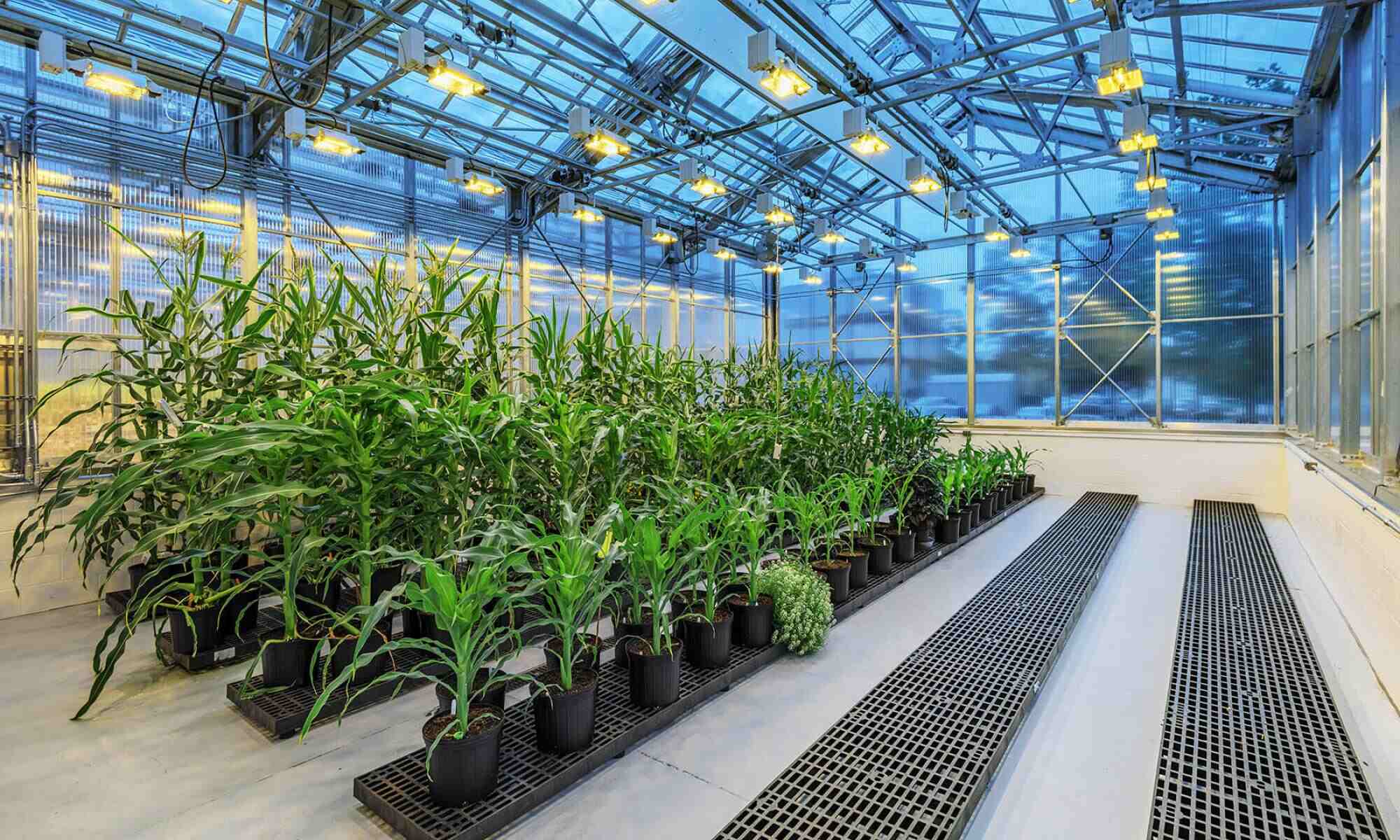Modern problems require modern solutions. The new frontier of solution-based innovation lies in the field of biotechnology. Bioinnovators: The Humans At The Forefront Of Biotech is a series of interviews with the organisations and entrepreneurs at the forefront of changing the world through biotechnology. With each interview, we hope to shine the light on conscious innovators and trailblazers across the globe who are using the natural world, combined with modern technological innovations, to find new solutions to the world’s most pressing problems.
We are surrounded by an unseen world of activity, a plethora of microscopic, single-celled organisms that are essential to the creation and survival of all life on Earth. Often misunderstood as dangerous or disgusting, these microorganisms, or microbes, have the power to solve huge global challenges and lead us towards a more sustainable future. Biotechnology gives us the ability to harness microbes' potential and revolutionise healthcare, agriculture and industrial processes to better benefit both our practices and the planet.
AgBiome is a biotechnology company located in the Research Triangle Park in North Carolina, USA, who are redefining agriculture by partnering with the microbial world. Specialising in crop protection, AgBiome develop innovative biological and trait products to enhance the global food production process and feed the world responsibly. By tapping into the microbial world, AgBiome gives growers the tools that allow them to produce abundant, high-quality crops, but in ways that enhance the global ecosystem.
The Lovepost sits down with Rodrigo Sarria, head of Research and Development at AgBiome, to discuss the importance of microbes and how AgBiome is harnessing this potential; how their products differ from traditional crop protection products; and their impressive GENESIS™ platform, which utilises biotechnology to discover natural microbes and determine their application.
We are interviewing you for our theme “Biotech For Change.” How would you define the term ‘biotechnology’?
Biotechnology uses biological processes or organisms to develop solutions that benefit humankind. That's the short definition. But I just want to highlight that humans have been using and benefiting from biological processes for thousands of years. It started with early farmers, when they started to modify plants to convert them into crops and to use them to feed themselves. Microbes have been a very important part of the development of agriculture. Maybe the most visible, purposeful use of microbes [has] been in fermentation processes to make bread, beer or wine, or to produce cheese and yoghurt.
What we recognise as biotechnology started in the second half of the 20th century in the 1960s and 1970s. That development of technology, to benefit from these biological processes, generated a boom in the industry that has been effective in developing solutions in multiple industries like healthcare and agriculture. These technologies fundamentally used biological and chemical technologies, but more recently have been combined with computational sciences, which has had a big impact and potentiated bio-engineering and the development of solutions to challenges that we have.
In [regards to] agriculture, biotechnology has been tremendously effective in providing farmers with scientifically backed tools and technologies that make production more effective, efficient, manageable and beneficial to the environment. In AgBiome, we focus on the use of biotechnology and advanced biological, genomic and computational tools to identify, engineer and develop those solutions and to make them available to our customers.
AgBiome uses microbes to enhance the global food production process. Why are microbes important for the health of the planet? Why is it important to work with them?
There is so much opportunity to use these microbes to improve [the planet's] health, and when you consider [there] are about a trillion microbial species on this planet, you can only imagine the genetic and biochemical diversity that exist in these organisms. And humans have only used a relatively small number of these microbial species. That is what we recognize at AgBiome—that diversity has tremendously untapped potential, from which we can benefit and do [so] in a responsible way. Our talented scientists at AgBiome are dedicated to using that technology to continue to tap into that potential, particularly in crop protection, where we are deeply committed to providing growers and farmers [with] the tools that will allow them to produce abundant and high quality crops.
What are the different ways in which microbes can help in food production and in agriculture in general? How exactly is AgBiome harnessing this?
There are multiple ways in which microbes help [grow] food. [They] protect the crops from pests by making nutrients readily available to the plants and the crops, and also by stimulating plant growth. Those are all proven applications that microbes have had in agriculture. One of the biggest challenges that we have in agriculture is the protection of crops from those pests. Because the reality is that pests are in a constant battle with the farmers, trying to fight back and develop resistance against the products that farmers use to protect the crops. Therefore, there is a continuous need to develop these crop protection products. At AgBiome we focus on the control of fungal diseases, insect control, nematode control and weed control. Those are our core areas. We are engaged in protecting these crops and providing farmers [with] the tools that they need.
The first product that we developed in AgBiome was a fungicide, so it was all geared toward protecting crops from fungal diseases. This product, Howler, is a very efficacious fungicide that has multiple modes of action. It is a preventative treatment, it's long-lasting and it can be used in a broad spectrum of diseases. Also, you will hear soon about the launch of a new biological fungicide and all our other fungal control products that we have in our pipeline. Second, there is our insect and nematode control initiatives that we are in the process of developing into products. So we are heavily engaged in other crop protection areas beyond fungicides. Last, but not least, we have recently engaged in the development of weed control solutions, because this is one of the more widespread problems that farmers face and we have already identified [what] leads to this type of problem.
Just to give you a little bit of context, weeds are highly adaptable and have developed double, triple and even quadruple resistance to existing chemical herbicides. And there have been no new modes of action in the last few decades. So farmers are in high need of new weed control solutions, and that's why we have committed ourselves to provide those solutions using biologicals.
How are AgBiome pesticides, fungicides and insecticides different from the traditional alternatives, and what benefits/advantages do they have over them?
Biological products are environmentally friendly because they are derived from nature. What we do is search for microbes with a natural ability to control the pests that we target, and we develop them into products by optimising their performance and the conditions under which we produce them. In addition, these biological products often have multiple modes of action or multiple approaches to control a given best, like an insect or a fungus or a weed. That is a huge contribution to better managing [pests' resistance development], which is often the problem of conventional alternatives. In that way, pests have a harder time developing these resistances and farmers have better tools to ensure better and more effective resistance management in their fields.
Can you elaborate a little on AgBiome’s microbial collection? How do you collect the microbes, how do you keep record of them and how does the collection help AgBiome develop its products?
AgBiome's microbial collection is the foundation of our GENESIS™ platform. This collection is one of the largest in the world. We have collected over 8,000 environmental samples in all 50 states in the United States and a few countries in Africa. Many of those samples have been isolated from fields dedicated to agriculture, but some come from other diverse environments. From those thousands of environmental samples, we have isolated over 100,000 microbes of which we have fully sequenced their genomes. We have extracted their genetic information and thousands of those have been tested against target pests. When we look from the [perspective of the] number of genes [that] we have identified, [that] we have sequenced [and] that we know of, [we have] about 600 million genes in our collection. That's a staggering number of genes and a staggering amount of genomic information.
That generates a challenge, managing this tremendously large amount of data. But we have developed advanced computational tools to index, catalogue, store and analyse all this data. And it's not data generated based on the genetic information of these microbes, but also their potential benefit of each one of them. What proteins that they have, what metabolites they produce, all the metabolic pathways that they use to produce them. In the context of this collection we not only test for crop protection applications, but also for other non-crop protection applications, and we have been successful in identifying needs for almost any of the applications that we have tested against.
Could you explain how your gene and strain identification system, GENESIS™, works and helps with pest control research?
The GENESIS™ platform is a comprehensive discovery platform that uses biotechnology tools. GENESIS™ integrates all our product discovery tools, starting from the collection of samples, the isolation of the microbes, the use of bio-informatics and computational tools to predict, mine and extract information and [to] collect the information of the testing of those microbes against our target relevant applications. In other words, GENESIS™ is a fully integrated suite of technologies that allows us to investigate natural microbes and determine their application. GENESIS™ is also continuously improved to accelerate the speed of innovation by going rapidly from a sample that we collect from the environment to the development of a product.
What are some of the problems and harmful side effects associated with traditional pesticides, fungicides and insecticides, especially on the environment and humans?
In terms of traditional pesticides like fungicides, insecticides and herbicides, I want to say that they have provided huge benefits to agriculture for many years and have been the reason we have prevented shortages in the food supply. So there are benefits to agrichemicals, as we know them, they are not all harmful. They also go through a regulatory process before they can be commercialised, so there's an assessment that is done on each one of these products before they can be released for use. But the reality is that some of them are more harmful than others, and when these chemical pesticides are not used as intended, or [are] overused, these products could have a negative environmental and human health impact. Some pesticides can persist longer in the environment, contaminating water, soil and even the food chain, and that poses a risk to human health.
In the case of biologicals, those negative effects are dramatically reduced. Those biological products are, in many cases, living organisms from nature, and our goal is to repurpose them for human benefit. That's what makes AgBiome committed to provide these solutions to the grower, because they have [the] potential to be highly effective and reduce that chemical load on the environment and allow farmers to produce food in a more responsible manner.
Your latest product, the Howler fungicide, produces natural antibiotics and enzymes to resist pathogens. Could you explain how it works and also how it is different from, or better and safer than, traditional alternatives?
Just to clarify, Howler does not produce antibiotics like those used on human or animal health. Howler is AgBiome's first product to market; it is a fungicide with multiple modes of action. The active ingredient in the Howler product is a bacterial strain of pseudomonas chlororaphis that is an effective fungicide. It produces small molecules or metabolites and enzymes that, working together, provide this preventative, long-lasting activity on a broad spectrum of diseases. And it can be used effectively in every phase of crop production, both in the greenhouse and in the field, and from planting to harvest.
Our customers have provided us [with] tremendously positive feedback across the country due to Howler's high level of efficacy. It performs at top-level compared to other biological products and is highly competitive with conventional chemical products on some of the diseases that we have tested. In addition, Howler offers farmers the benefit of growing crops in a more sustainable manner.
What is AgBiome’s philosophy on balancing profit with environmental impact? In your view, is it possible to have the best of both worlds?
Well, agriculture is one of the most taxing activities in our environment. Producing food in a more sustainable way has a significant positive environmental impact, and AgBiome's biological products not only [aid the production of] more and safer food, but [also] allow us to do [so] with environmental benefits. Yes, with the type of products that we develop, we think it is possible to strike a good balance [of] being a viable business while reducing negative environmental impacts. We strongly believe in the responsible development of products. That is ingrained in the mission that was used when Scott Uknes and Eric Ward [co-CEOs] started the company in December 2012, and we remain committed to this mission to feed the world more responsibly and sustainably.







